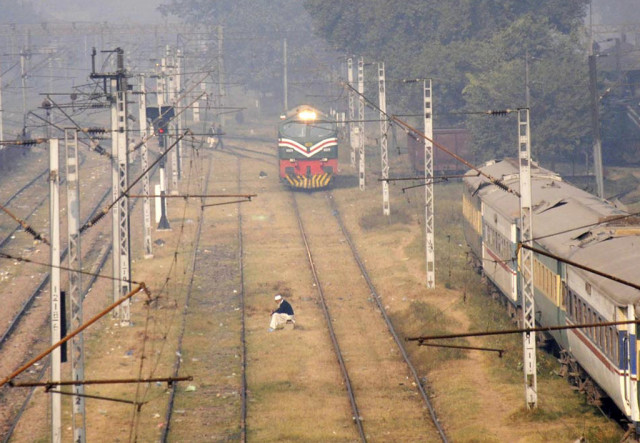Pakistan Railways: China to inject $3.5b into infrastructure development
Team to arrive on October 25 to undertake comprehensive study.

A 23-member delegation of Chinese technical experts, led by Meng Wenli, Chief Engineer Alignment, will come on a trip to Pakistan at the weekend to pick the areas for an investment of $3.5 billion and complete the rehabilitation and replacement of tracks from Karachi to Peshawar.
The delegation, comprising representatives of China Railway Eeyuan Engineering Group Company, would arrive on October 25 and undertake a comprehensive study of a 1,400-km rail track with the technical support of the National Engineering Services of Pakistan (Nespak) and the Pakistan Railways Consultancy and Advisory Service, said an official.

The survey will also cover 2,340 bridges and 11 tunnels from Karachi to Peshawar via Hyderabad, Bahawalpur, Multan, Sahiwal, Lahore, Gujranwala, Gujrat, Jhelum, Rawalpindi and Attock.
Initially, the visit was scheduled for May this year, but was delayed and rescheduled for the last week of October. The team will prepare a report and submit it in February next year to the governments of China and Pakistan for further deliberation and reaching agreements.
China has expressed interest in pouring about $3.5 billion into infrastructure development for the railways. The areas where the money will be injected include replacement of rail tracks over 375 km, deep screening of ballast over 1,260 km, conversion of un-manned level-crossing into underpasses at 50 places, conversion of manned level-crossing into flyovers at 250 places, realignment of 40 big curves, strengthening of 500 bridges and doubling a 438km track at various places between Shahdara and Peshawar.
“This investment is, in fact, a loan being given by China at a concessionary interest rate of 1.5% under the Pakistan-China Economic Corridor,” the official said. “It will be released by the Export-Import Bank of China after receiving sovereign guarantees from the Pakistan government.”
The average speed passenger trains could run on this rail track is in the range of 85 to 105 km per hour, but they do not accelerate above 95 km per hour.
“After the replacement of tracks, the trains will run at the maximum speed of 120 km per hour for the next 15 to 20 years,” the official said.
According to the official, the Pakistan Railways complies with the Public Procurement Regulatory Authority (PPRA) rules, but in this particular case it will not be necessary to follow the rules as an agreement is being signed between the governments of Pakistan and China.
Only Chinese companies would participate in the bidding for contracts for all civil and engineering work. They would earn a profit of up to 20% to 25% on their investments and the Pakistan government would return the loan with interest payments to the financing bank, the official added.
“The management of Pakistan Railways was also asking China to undertake a project of electric traction over 1,400 km between Karachi and Lahore, but it refused,” said another official.
Published in The Express Tribune, October 22nd, 2014.
Like Business on Facebook, follow @TribuneBiz on Twitter to stay informed and join in the conversation.



















COMMENTS
Comments are moderated and generally will be posted if they are on-topic and not abusive.
For more information, please see our Comments FAQ